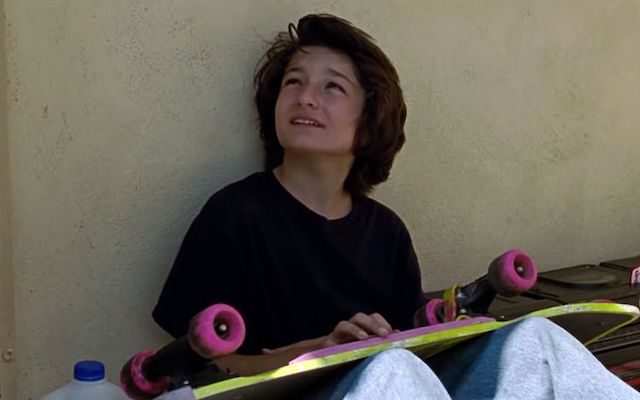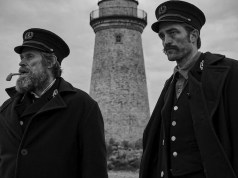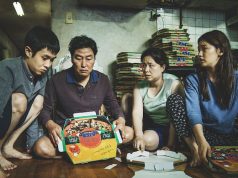
For maximum nostalgia, “Mid90s” is presented not in widescreen but in 4:3, the way it would have looked on TV or videotape back in the day. “Maximum nostalgia” is the motivating factor for almost everything in Jonah Hill’s directorial debut (which he also wrote), a coming-of-age comedy set among adolescent skater boys in Southern California in the middle of the Clinton years. The story is disappointingly formulaic (and didn’t need to be set in the mid ’90s), but Hill and his young stars capture the awkward, funny social dynamics of that age group with tender authenticity.
Our lovable protagonist is Stevie (Sunny Suljic), a small, eager 13-year-old who hasn’t lost his innocence yet — or as one girl puts it, he’s “at the age before guys become d***s.” Stevie idolizes his older brother, Ian (Lucas Hedges), a wannabe thug with anger issues, but has few friends until he meets Ruben (Gio Galicia), a boy his own age who introduces him to a cool new world. Ruben’s social circle is a small group of skateboarding high-schoolers, led by the charismatic Ray (Na-kel Smith), with boys nicknamed Fourth Grade (Ryder McLaughlin) and F***s*** (Olan Prenatt) as sidekicks (yes, the latter kid’s nickname is a portmanteau of expletives). Stevie takes up skating to fit in, and is thrilled to find acceptance and purpose among these mostly harmless delinquents.
The film’s best moments are when Stevie and his new crew are just hanging out, having dopey teenage conversations about stupid things, smoking pot, drinking beer, laughing themselves silly. None of the actors except Suljic have much prior experience (Prenatt and Galicia have zero), and there’s an un-fakeable naturalness to their casual interactions. Their conversation has plenty of casual racism and homophobia (I guess that’s the part that would be different if it were set in 2018), including an amusing thread where Ruben thinks it’s “gay” for a guy to tell another guy “thank you.” Ruben, who was glad to have someone his age in the group, gets jealous when Stevie, having gotten into Ray’s good graces, starts passing him in the hierarchy. And Ray, while not the best role model, is a suitable big-brother surrogate for Stevie, taking him out skating, just the two of them, after Stevie has a fight with his mom (Katherine Waterston). A lot of sweetness is baked into the film’s coarseness.
But before long the trajectory becomes clear. Now that he’s taken up drinking and smoking (and hiding those things from Mom), now that he feels comfortable among his new friends, Stevie has to get cocky and reckless, and then something bad has to happen to wake him up. Can it be a car accident? Sure, that’s what most filmmakers choose in this situation; why should Hill be any different? Everything is resolved in the expected fashion. But predictable or not, “Mid90s” boasts endearing performances, a spot-on soundtrack, and smooth direction by Hill, who shows an eye for capturing slice-of-life realism. The comparison is facile but apt: It’s the boy version of “Eighth Grade,” less creative but just as honest.
B (1 hr., 25 min.; )





